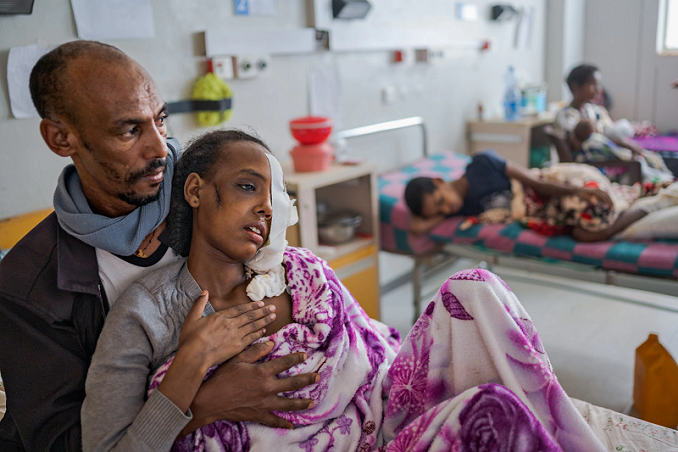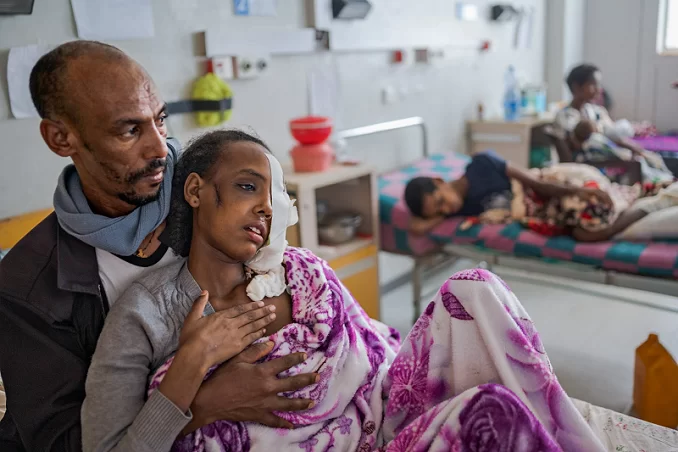

tigray conflict prevents supplies reaching hospitals patients suffer the consequences
![]()
![]()
“Patients die. Every day we hear about patients dying because of a lack of oxygen, a lack of this drug, that drug,” a doctor at the Ayder referral hospital in Mekelle, the regional capital, said.
Internet connectivity is a rarity too in the region. Taking the opportunity of one such instance, the doctor connected with The Guardian. He told of talking to doctors from the northern town of Adwa who told him that their hospital had “survived looting and destruction” during the early months of the war, and now it was struggling to keep infants alive. “They said: patients are dying because of a lack of oxygen, a lack of electricity and they cannot keep the babies breathing. The machines are failing. So they were asking for help but we told them we cannot do anything,” he said.
The World Health Organization has not been able to supply essential aid and supplies to Tigray from July last year up till last month. Doctors and aid workers say that even though the supply has resumed now, the needs of the population are too huge currently and they are nowhere near to fulfilling the demand gap after months-long shortage.
There is a chronic fuel shortage in the Tigray region which is now taking a toll on the hospitals. A major crisis is diesel generator which is to be used amid frequent electricity shortages – it requires about 2000 litres of fuel to run for 24 hours. “That has become impossible,” said the doctor. “So we’re trying to use very small generators that can use a small amount of fuel and even that is becoming a real problem. So again, downsizing the service, day by day, that’s what we’ve been doing.”
“Cancer patients are really suffering,” the doctor said. “We ask them to wait and wait and they keep on coming back, especially now [some] drugs are coming to Mekelle and almost everyone ran to the hospital asking if their drugs arrived.”
The doctor said no more diagnostic tests available at the hospitals now. “We cannot make a diagnosis of HIV in children. So care is significantly compromised,” he said. “Without treatment, up to half of infants infected with HIV die within their first two years.”
MultiChoice and NBCUniversal have given $145 million to support Showmax Africa. This money will help with running the business and…
The ongoing search for Free State police officers in Centurion resulted in the discovery of five dead bodies found in…
The Sistine Chapel will welcome Cardinal members in the forthcoming week to start electing succession candidates on May 7 for…
Namibia’s President, Netumbo Nandi-Ndaitwah, has removed Agriculture Minister Mac-Albert Hengari from his position. The decision came after serious allegations of…
Manchester United manager Ruben Amorim has confirmed that defender Diogo Dalot might miss the rest of the season due to…
Tanzanian President Samia Suluhu Hassan has praised Simba SC after the team made history by reaching the final of the…
This website uses cookies.